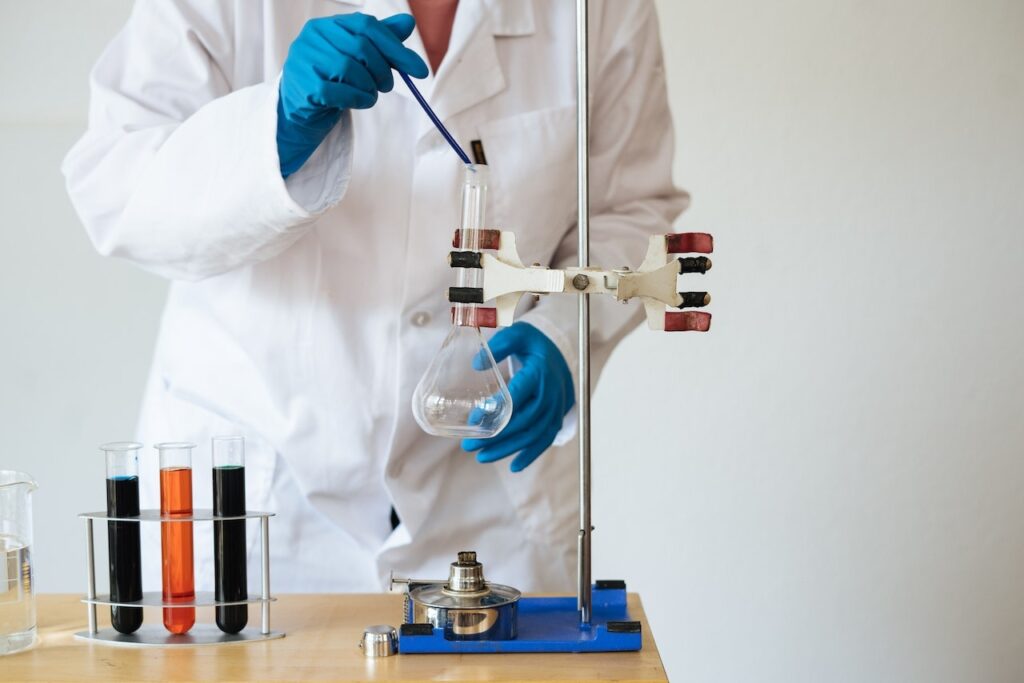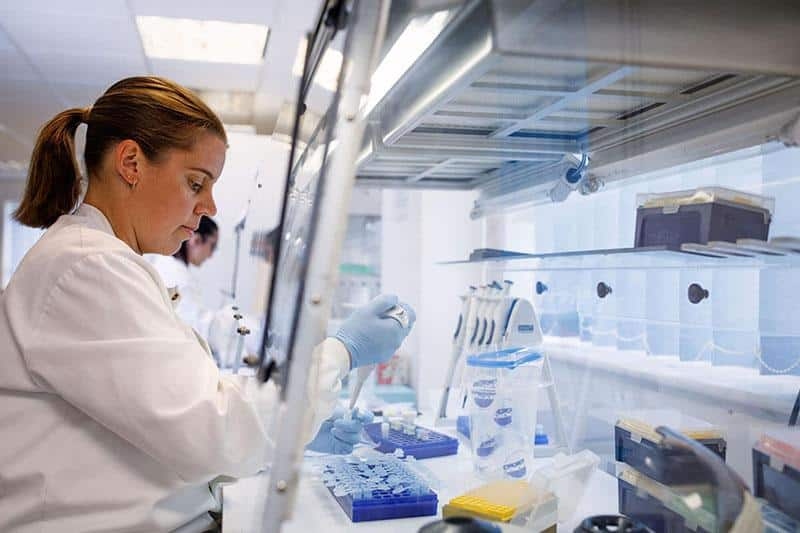- Data science in the pharmaceutical industry is revolutionizing drug discovery by enabling faster and more accurate identification of potential compounds.
- By leveraging data science in the pharmaceutical industry, companies can optimize clinical trials, improving both efficiency and success rates.
- The use of data science in the pharmaceutical industry also facilitates personalized medicine, allowing for treatments tailored to individual genetic profiles.
Data science is transforming various industries, and the pharmaceutical sector is no exception.
The integration of advanced analytics, machine learning, and big data into pharmaceutical research and development (R&D) is ushering in a new era of innovation, efficiency, and precision.
Data science in the pharmaceutical industry enhances supply chain management, ensuring a steady and reliable supply of medications.
Accelerating Drug Discovery and Development

The traditional drug discovery process is time-consuming and costly, often taking over a decade and billions of dollars to bring a new drug to market.
Machine learning algorithms analyze vast datasets to predict how different compounds will interact with biological targets, identifying promising candidates faster than conventional methods.
Advanced computational techniques simulate interactions between drugs and their targets, reducing the need for extensive laboratory experiments.
By analyzing genetic data, data scientists can identify biomarkers for diseases, leading to the development of targeted therapies.
Enhancing Clinical Trials
Clinical trials are a critical phase in drug development, often plagued by high failure rates and long durations. Data science optimizes by analyzing patient data to identify suitable candidates for trials, improving recruitment efficiency and ensuring diverse participant representation.
Wearable devices and sensors collect real-time patient data, allowing for continuous monitoring and quicker identification of adverse effects.
Machine learning models enable adaptive trial designs, where protocols are modified based on interim results, improving success rates and reducing costs.
Tailoring Treatments with Precision Medicine
Data science plays a pivotal role in the shift towards precision medicine, where treatments are tailored to individual patients based on their genetic makeup, lifestyle, and environment.
One key contribution is genomic sequencing, which involves analyzing genomic data to identify genetic mutations associated with diseases, thereby guiding the development of targeted therapies.
Another crucial aspect is patient stratification, which segments patients into subgroups based on genetic, phenotypic, and clinical data, enabling personalized treatment plans.
Additionally, predictive analytics is employed to predict individual responses to treatments, helping clinicians make informed decisions and improve patient outcomes.
Improving Pharmacogenomics
Pharmacogenomics studies how genes affect a person’s response to drugs, and data science significantly enhances this field.
By integrating genetic, clinical, and environmental data, data science helps to better understand drug efficacy and safety profiles. Additionally, the development of algorithms to predict adverse drug reactions and optimize drug dosing for individual patients is another key contribution.
Furthermore, data science aids in biomarker discovery, identifying biomarkers that predict therapeutic responses and guiding the development of personalized therapies.
Optimizing Drug Production and Supply Chain
Data science optimizes various aspects of pharmaceutical manufacturing and supply chain management.
By analyzing production data, it identifies bottlenecks, improves efficiency, and ensures consistent product quality.
Predictive maintenance is another crucial application, where machine learning is used to predict equipment failures, thereby reducing downtime and maintenance costs.
Additionally, data science enhances supply chain management by utilizing predictive analytics to forecast demand, optimize inventory levels, and prevent drug shortages.
Enhancing Drug Safety and Pharmacovigilance

Ensuring drug safety is paramount in the pharmaceutical industry. Data science enhances pharmacovigilance through:
Machine learning algorithms analyze healthcare data to detect adverse drug reactions early, ensuring prompt action.
Identifying patterns and trends in adverse event reports to uncover potential safety issues.
Automating the process of adverse event reporting, improving efficiency and compliance with regulatory requirements.
Challenges of Data Science in the Pharmaceutical Industry
Handling sensitive patient data requires stringent privacy and security measures. The pharmaceutical industry must employ advanced encryption and cybersecurity measures to protect data.
It’s also important to adhere to regulations such as the General Data Protection Regulation (GDPR) and the Health Insurance Portability and Accountability Act (HIPAA).
Integrating data from various sources remains a challenge. Future efforts should focus on:
Standardizing Data Formats: Developing standardized data formats to facilitate seamless data integration.
Enhancing Interoperability: Creating interoperable systems that allow for the smooth exchange of data across platforms and organizations.
The use of data science in pharmaceuticals raises ethical concerns, including:
Bias in Algorithms: Ensuring that machine learning models do not perpetuate existing biases in healthcare.
Transparency and Accountability: Maintaining transparency in data collection and algorithmic decision-making to build trust among stakeholders.
The Future of Data Science in the pharmaceutical industry

Continued advancements in technology will further enhance the impact of data science on the pharmaceutical industry:
Artificial Intelligence (AI): AI will drive more sophisticated predictive models, improving drug discovery and patient outcomes.
Blockchain: Blockchain technology can enhance data security and transparency in clinical trials and supply chains.
Internet of Things (IoT): IoT devices will enable more comprehensive and continuous patient monitoring, generating valuable data for analysis.
Data science is revolutionizing the pharmaceutical industry, offering unprecedented opportunities to accelerate drug discovery, personalize treatments, and improve healthcare outcomes. By leveraging advanced analytics, machine learning, and big data, pharmaceutical companies can enhance efficiency, reduce costs, and deliver innovative therapies to patients faster than ever before.
As technology continues to evolve, the potential for data science in pharmaceuticals will only grow, promising a future of precision medicine and improved patient care. Embracing these advancements while addressing challenges such as data privacy, integration, and ethical considerations will be crucial in realizing the full potential of data science in transforming the pharmaceutical landscape.

